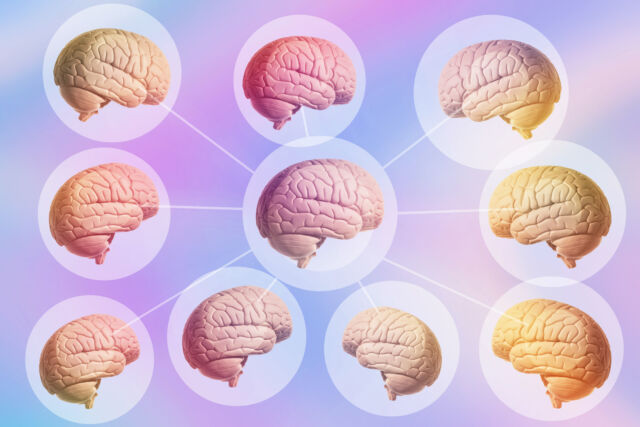Big Tech can’t hoard brainwave data for ad targeting, Colorado law says

🌈 Abstract
The article discusses Colorado's expansion of its privacy law to include protection for sensitive neural data, making it the first state in the US to do so. The law requires tech companies to gain consent to collect neural data and be more transparent about how it is used. It also allows people to access, delete, or correct their neural data and opt out of the sale or use of their data for targeted advertising. The article also discusses the potential implications of this law, including opposition from academic researchers and tech companies, as well as the potential for federal lawmakers to take similar action.
🙋 Q&A
[01] Colorado's Expanded Privacy Law
1. What does Colorado's expanded privacy law do?
- The law expands the scope of Colorado's existing privacy law to include protection for sensitive neural data, in addition to biometric data like fingerprints or face images.
- The law requires tech companies to gain consent to collect neural data and be more transparent about how it is used.
- It allows people to access, delete, or correct their neural data, and to opt out of the sale or use of their data for targeted advertising.
2. What prompted the update to Colorado's privacy law?
- A member of the board of directors of the Colorado Medical Society, Sean Pauzauskie, informed Democratic State Representative Cathy Kipp about loopholes in state laws regarding neural data.
- Kipp then introduced a bill to update the privacy law, warning that neural data "can reveal intimate information about individuals, including health, mental states, emotions, and cognitive function" but "outside of medical settings" can "operate without regulation or data protection standards."
3. What are some of the potential implications of Colorado's law?
- The law could stop companies from hoarding brain activity data without residents realizing the risks.
- It is seen as a major step forward in protecting neural data, which was previously not protected at all under the Colorado Privacy Act.
- The law has faced some opposition, including from academic researchers and tech companies, who are concerned about the limitations it places on the use of neural data.
[02] Opposition to Colorado's Law
1. What are the main sources of opposition to Colorado's law?
- Academic researchers, particularly at private universities in Colorado, opposed the law because it potentially limited their "ability to train students who are using 'the tools of the trade in neural diagnostics and research' purely for research and teaching purposes."
- Tech companies, represented by TechNet, pushed for changes to the law, including language "focusing the law on regulating brain data used to identify individuals" rather than all neural data.
- The ACLU raised concerns about the law's limitation to only cover data that can be used to identify individuals, rather than restricting all biometric data collection, retention, storage, and use.
2. How does the law address the opposition from public and private universities?
- The law exempts public universities conducting research with neural data, due to a conflict where the state attorney general would be charged with both prosecuting and defending public universities if any claims over their use of neural data arose.
- However, private universities in the state conducting similar research did not receive the same exemption, leading them to oppose the legislation.
- The article notes that the co-sponsor of the law, Republican State Representative Mark Baisley, intends to push a follow-up bill next year to remove the exemption from public universities and resolve the conflict with private universities.
3. What are the concerns raised by the ACLU regarding the limitations of Colorado's law?
- The ACLU raised concerns about the law's limitation to only cover data that can be used to identify individuals, rather than restricting all biometric data collection, retention, storage, and use.
- This means that companies that don't specifically collect brainwave data for identification purposes, but for other purposes such as decoding someone's thoughts or feelings, won't be impacted by the law.
[03] Potential for Federal Action
1. What is the potential for federal lawmakers to take similar action as Colorado?
- The article notes that the Neurorights Foundation, which co-founder Jared Genser says played a role in pushing for Colorado's law, is hoping that it will inspire federal lawmakers to take similar action soon.
- In a post on X, Neurorights celebrated Colorado's law as the "first place in world to legally define and protect neural data as sensitive," and expressed hope that it will "begin some momentum that the world will take on."
- The article quotes Republican State Representative Mark Baisley saying, "Hopefully, we've begun some momentum that the world will take on."
2. What is the current status of similar legislation in other states?
- The article mentions that similar legislation is advancing in California and has been introduced in Minnesota, but that Colorado's bill passed unanimously, while there has been some notable opposition that could stop the country from embracing Colorado's privacy standards.
3. What are the potential hurdles to federal brainwave data protection legislation?
- The article highlights the opposition from academic researchers, particularly private universities in Colorado, as well as tech companies represented by TechNet, as potential hurdles to federal legislation.
- The ACLU's concerns about the limitations of Colorado's law, such as only covering data that can be used to identify individuals, could also be a challenge for federal lawmakers to address.